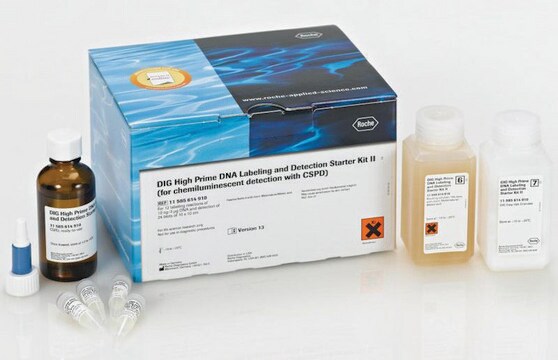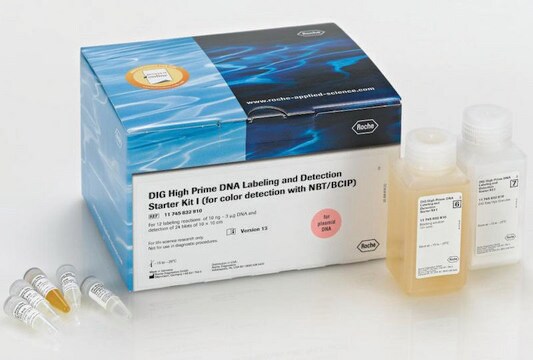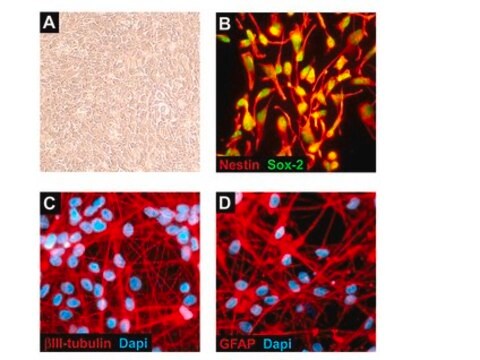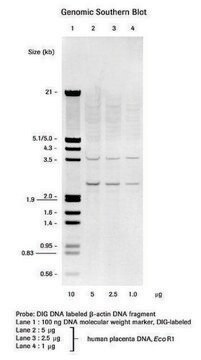LA1-5s
6041204, human nerve, Fibroblast-like
Zaloguj sięWyświetlanie cen organizacyjnych i kontraktowych
About This Item
Kod UNSPSC:
41106514
Polecane produkty
Nazwa produktu
LA1-5s, 06041204
pochodzenie biologiczne
human nerve
tryb wzrostu
Not specified
kariotyp
Not specified
morfologia
Fibroblast-like
produkty
Not specified
receptory
Not specified
metody
cell culture | mammalian: suitable
powiązane choroby
cancer
Warunki transportu
dry ice
temp. przechowywania
−196°C
Pochodzenie linii komórkowej
Human Neural Crest-Derived Non-Neuronal Progenitor
Opis linii komórkowej
LA1-5s is a clonal subline of the cell line LA-N-1 which was established by Seeger et al., (1977) from the primary site of a noncatecholamine-producing neuroblastoma of a 3-year-old female with clinical Stage IV neuroblastoma. The LA1-5s culture consists of large, flat, and tightly adherent cells. They are precursors of Schwann cell/glia/melanocyte lineages arising from the neural crest. This cell line is not tumourigenic in nude mice at a 1,000,000 cell inoculum. The cells can transdifferentiate to a neuroblastic phenotype. The N-myc gene has been reported to be amplified but exhibits very low expression.
LA-N-1 (Sigma catalog number 06041201), LA1-55n (Sigma catalog number 06041203) and LA1-5s (Sigma catalog number 06041204) have been shown to originate from the same patient by STR profiling.
LA-N-1 (Sigma catalog number 06041201), LA1-55n (Sigma catalog number 06041203) and LA1-5s (Sigma catalog number 06041204) have been shown to originate from the same patient by STR profiling.
pożywka hodowlana
EMEM (with non-essential amino acids) and Ham′s F12 (1:1 mixture) + 2 mM Glutamine + 10% Fetal Bovine Serum (FBS)
Rutyna subkultury
For routine maintenance, split cultures every 2-3 weeks at a 1:10 to 1:100 ratio; 8% CO2; 37 °C. The cells are large, flat, fibroblast-like cells that adhere strongly to the substrate. They form a swirling monolayer with no mounding or multilayering when in culture for only a short time, but will increase in density in the stationary phase as the culture is maintained. The cells can be removed from the substrate by rinsing with PBS, then incubating with EDTA/trypsin (at room temperature). Cells will detach in 5-10 minutes. Cells will reattach within several hours after seeding into a new flask. Population doubling time is approximately 2 days. Cells grow best and are most adherent on a plastic substrate in medium at a pH of 6.9-7.2; they do not tolerate more alkaline pH well. Cultures hold well at high density with periodic medium changes, but may also give rise to neuroblastic variants.
Inne uwagi
Additional freight & handling charges may be applicable for Asia-Pacific shipments. Please check with your local Customer Service representative for more information.
Ta strona może zawierać tekst przetłumaczony maszynowo.
Wybierz jedną z najnowszych wersji:
Certyfikaty analizy (CoA)
Lot/Batch Number
Przepraszamy, ale COA dla tego produktu nie jest aktualnie dostępny online.
Proszę o kontakt, jeśli potrzebna jest pomoc Obsługa Klienta
Masz już ten produkt?
Dokumenty związane z niedawno zakupionymi produktami zostały zamieszczone w Bibliotece dokumentów.
Nasz zespół naukowców ma doświadczenie we wszystkich obszarach badań, w tym w naukach przyrodniczych, materiałoznawstwie, syntezie chemicznej, chromatografii, analityce i wielu innych dziedzinach.
Skontaktuj się z zespołem ds. pomocy technicznej







